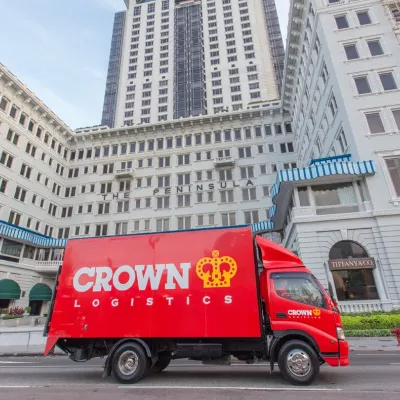Due to the Covid-19 pandemic, the HKSAR government has raised quarantine from 14 to 21 days. Travellers must arrange their quarantine hotel before arriving in Hong Kong. All hotels are adapting new ways of operation in welcoming their guests afresh, and most importantly, keeping their guests safe and protected.
Changing dinning habits
To enforce social distancing, visitors are encouraged to place à la carte order instead of enjoying buffet in the restaurant. Meals are individually served, more take-away options are available. Many hotels offered complimentary bowls of nuts, cookies or popcorns in the past would be suspended in the meantime to prevent cross contamination.
Embracing technology
Hotels are investing in automated self-check-in process and offering of digital keys for mobile devices to minimize personal interaction.
The IoT technology allows user to control a room’s lights, air conditioning, heating and curtains from a centralized location such as a smartphone or tablet. Voice recognition can let guests use voice commands to turn on or off the television or to change the channel. Recorded customer support videos and live chat activate by QR code scanning, would leave the guests with a lasting impression and more likely that they return in the future. Equip the hotel rooms with simple gym equipment or on-demand workout videos to foster in-room exercising is equally overwhelming.
Minimal lodgings
Moving forward, guestrooms with minimal decorations is the trend to reduce disinfecting items. Amenities such as pens with hotel labels, memo pads, directories, magazines would be possibly swept away. Items that bring a touch of glamour to the rooms but with doubted usefulness such as bed runners, decorative cushions, shall be removed.
Eco-friendly trend
According to the 2020 Sustainable Travel Report by Booking.com conducted in March, 82% of travellers declared sustainable travel as being important, while 58% travellers said they were looking to make more sustainable choices once travelling was back to the top of their agenda. Reduce the use of single-use plastic products, create paperless operations, source food locally, replace showers that save water usage are some of the initiatives hotels can adopt to minimize negative environmental impact while capturing the hearts of more environmental and social conscious travellers.
If you are looking for procurement of protection or sustainable hotel amenities, talk to our Crown Logistics specialist. We are experienced in sourcing for international hotel operators from leading manufacturers with customized logistics solutions that guarantee cost savings and reliable planning.
